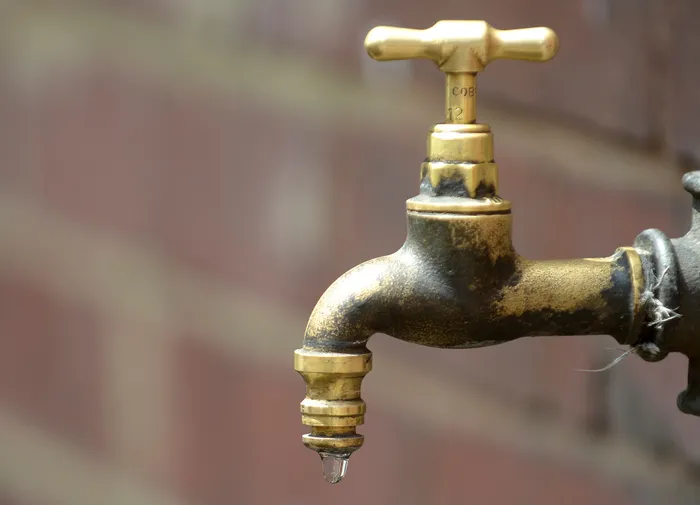Ratepayers, opposition parties slam 'exorbitant' fees for water utility board members

Ratepayers and opposition parties have criticised the high fees awarded to board members of water utilities such as uMngeni-uThukela Water.
Image: Independent Newspapers Archives
While ratepayers and opposition parties have expressed outrage at the “exorbitant” fees paid to board members of the water utilities in the country, the Department of Water and Sanitation (DWS) has dismissed concerns that the pay is excessive.
Ratepayers and opposition parties have balked at the fees, some running to more than a million rand, describing them as unjust, excessive, and tantamount to reckless management of public funds. The fees are detailed in recent parliamentary questions, which outline how much the board members are paid.
In the case of the uMngeni-uThukela Water Board, one board member earned R1.5 million while attending approximately 14 meetings during that period. The 12 individuals listed as board members of the entity for 2023 earned between R460,000 and R1.5 million, having attended between 13 and 27 meetings.
One member in uMngeni-uThukela, identified as B. S. Khuzwayo, earned approximately R1.5 million for attending 14 meetings, while another board member, S. W. Mkhize, was paid about R1 million for attending 19 meetings. Additionally, L. Gopaul received R963,000 for 19 meetings, and T. Mhlongo earned R922,000 for attending 22 meetings.
Anthony Waldhausen of the Msunduzi Association of Ratepayers Residents and Civics said, “It is scandalous that they are remunerated such high amounts. What good decisions have come out of these board meetings that can justify such high remuneration? We, the taxpayers, are paying for poor planning and decision-making on the part of the board.”
The eThekwini Ratepayers and Residents Association president, Ish Prahladh, expressed outrage, saying, “The biggest problem is who is sanctioning this expenditure and why. If this kind of expenditure is stopped, it would mean less funding from the ratepayers and fewer increases, as these exorbitant amounts would help ease the burden on the ratepayer.”
uMkhonto weSizwe Party MP Visvin Reddy called for action to address the situation and ensure that no malfeasance is taking place. He demanded an immediate investigation by the Auditor-General into all board members’ claims and undeclared gifts, public disclosure of all procurement related to board gifting, and the introduction of criminal charges for fraudulent reporting and abuse of public funds.
Alan Beesley, ActionSA MP, said the payment of such large board fees is not justifiable and is totally unacceptable. “The blatant abuse of public money speaks to the fact that many people compensated by public entities have lost their moral compass. The sad reality is that this abuse is happening across many public entities, and the GNU is simply asleep at the wheel. As a member of SCOPA, I will be raising the matter and asking that the department give an account for this abuse.”
Stephen Moore, DA spokesperson on Water and Sanitation, described the revelations as “alarming.” “While the Department argues that these amounts are in line with approved policies, that does not make them right or fair to the millions of South Africans currently without basic services,” he said.
Siyabonga Maphumulo, spokesperson of uMngeni-uThukela, said the entity has taken note of the reports surrounding the remuneration of its board, adding that a report has been compiled for the Minister of Water and Sanitation outlining the facts. “uMngeni-uThukela Water will fully cooperate with any further oversight or review processes deemed necessary by the Shareholder,” he said.
Department spokesperson Wisane Mavasa said the maximum amount earned by a board member in the last financial year was R1.7 million, adding that the members do more than attend board meetings. “Board members are paid a fixed board fee (equal to 16 hours a month) to compensate them for time spent on preparation for meetings, research, and other official activities of the water board.
“There are standard board meetings, which normally take place every two months, as well as extraordinary board meetings to deal with specific issues as they arise. Each board meeting is typically preceded by subcommittee meetings,” Mavasa explained.
She added that all board fees are determined in accordance with the DWS remuneration policy, developed through an independent comparative study of remuneration of boards in the public sector, and approved by the minister. This policy is reviewed and adjusted annually in line with the Consumer Price Index.
“Different hourly rates apply depending on the size of the water board. The hourly rate is determined by the size and annual budget of the water board, using an internationally accepted and recognised grading and linked remuneration methodology,” she stated.
The hourly rates vary between R1,818 per hour for the chairperson of a large water board to R1,150 per hour for a board member of a small water board. These rates are much lower than the average rates paid to members of boards of comparably sized companies in the private sector.
Mavasa said most of the board members are professionals in fields such as finance, accountancy, law, engineering, and science. The hourly rates paid to board members align with the rates that they would charge if they were practising as professionals in their industries. For example, a senior professional accountant charges between R1,500 and R2,500 per hour.
“The water boards have consistently achieved unqualified audits from the AGSA, reflecting sound governance and financial management. The consolidated actual revenue collected was R38.9 billion, which is higher than the projected revenue of R33.2 billion. This indicates an overall positive trend, attributed to better credit control measures, particularly by the larger water boards,” she said.
Related Topics: